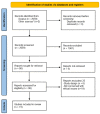Clearing the Fog: A Scoping Literature Review on the Ethical Issues Surrounding Artificial Intelligence-Based Medical Devices
- PMID: 38793025
- PMCID: PMC11121798
- DOI: 10.3390/jpm14050443
Clearing the Fog: A Scoping Literature Review on the Ethical Issues Surrounding Artificial Intelligence-Based Medical Devices
Abstract
The use of AI in healthcare has sparked much debate among philosophers, ethicists, regulators and policymakers who raised concerns about the implications of such technologies. The presented scoping review captures the progression of the ethical and legal debate and the proposed ethical frameworks available concerning the use of AI-based medical technologies, capturing key themes across a wide range of medical contexts. The ethical dimensions are synthesised in order to produce a coherent ethical framework for AI-based medical technologies, highlighting how transparency, accountability, confidentiality, autonomy, trust and fairness are the top six recurrent ethical issues. The literature also highlighted how it is essential to increase ethical awareness through interdisciplinary research, such that researchers, AI developers and regulators have the necessary education/competence or networks and tools to ensure proper consideration of ethical matters in the conception and design of new AI technologies and their norms. Interdisciplinarity throughout research, regulation and implementation will help ensure AI-based medical devices are ethical, clinically effective and safe. Achieving these goals will facilitate successful translation of AI into healthcare systems, which currently is lagging behind other sectors, to ensure timely achievement of health benefits to patients and the public.
Keywords: artificial intelligence; ethics; healthcare; machine learning; medical devices; regulatory affairs.
Conflict of interest statement
The authors have no conflicts of interest to disclose.
Figures


References
-
- MedTechEurope . The European Medical Technology Industry in Figures 2022. MedTechEurope; Brussels, Belgium: 2022.
-
- Digital Health News Healthcare 5.0 Technologies at Healthcare Automation and Digitalization Congress 2022. [(accessed on 23 January 2023)]. Available online: https://www.digitalhealthnews.eu/events/6737-healthcare-5-0-technologies....
-
- Tortorella G.L., Fogliatto F.S., Mac Cawley Vergara A., Vassolo R., Sawhney R. Healthcare 4.0: Trends, challenges and research directions. Prod. Plan. Control. 2020;31:1245–1260. doi: 10.1080/09537287.2019.1702226. - DOI
-
- Corti L., Afferni P., Merone M., Soda P. Hospital 4.0 and its innovation in methodologies and technologies; Proceedings of the 2018 IEEE 31st International Symposium on Computer-Based Medical Systems (CBMS); Karlstad, Sweden. 18–21 June 2018.
-
- Mbunge E., Muchemwa B., Jiyane S.e., Batani J. Sensors and healthcare 5.0: Transformative shift in virtual care through emerging digital health technologies. Glob. Health J. 2021;5:169–177. doi: 10.1016/j.glohj.2021.11.008. - DOI
Publication types
Grants and funding
LinkOut - more resources
Full Text Sources

